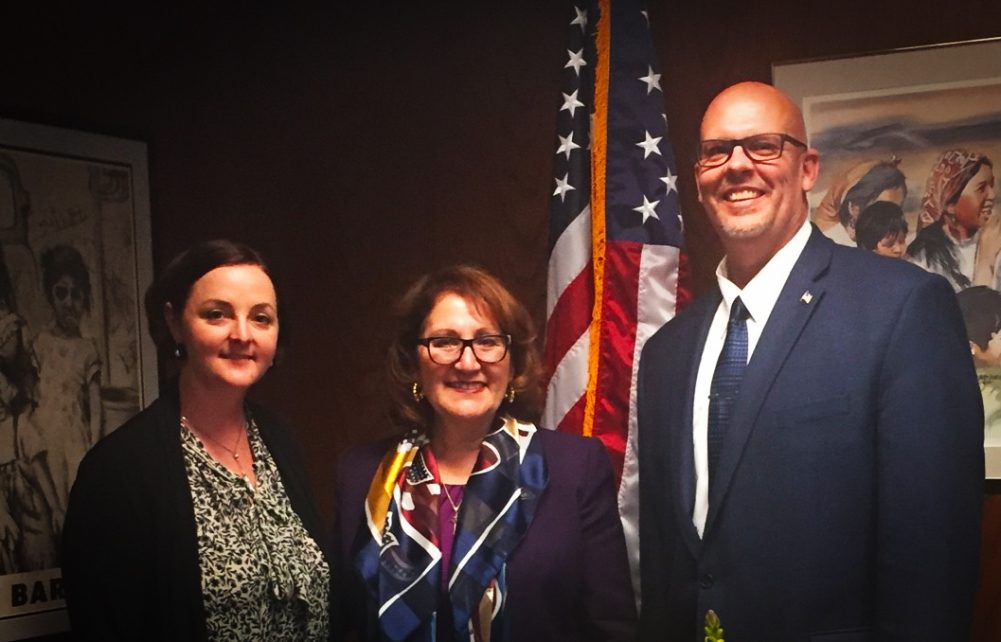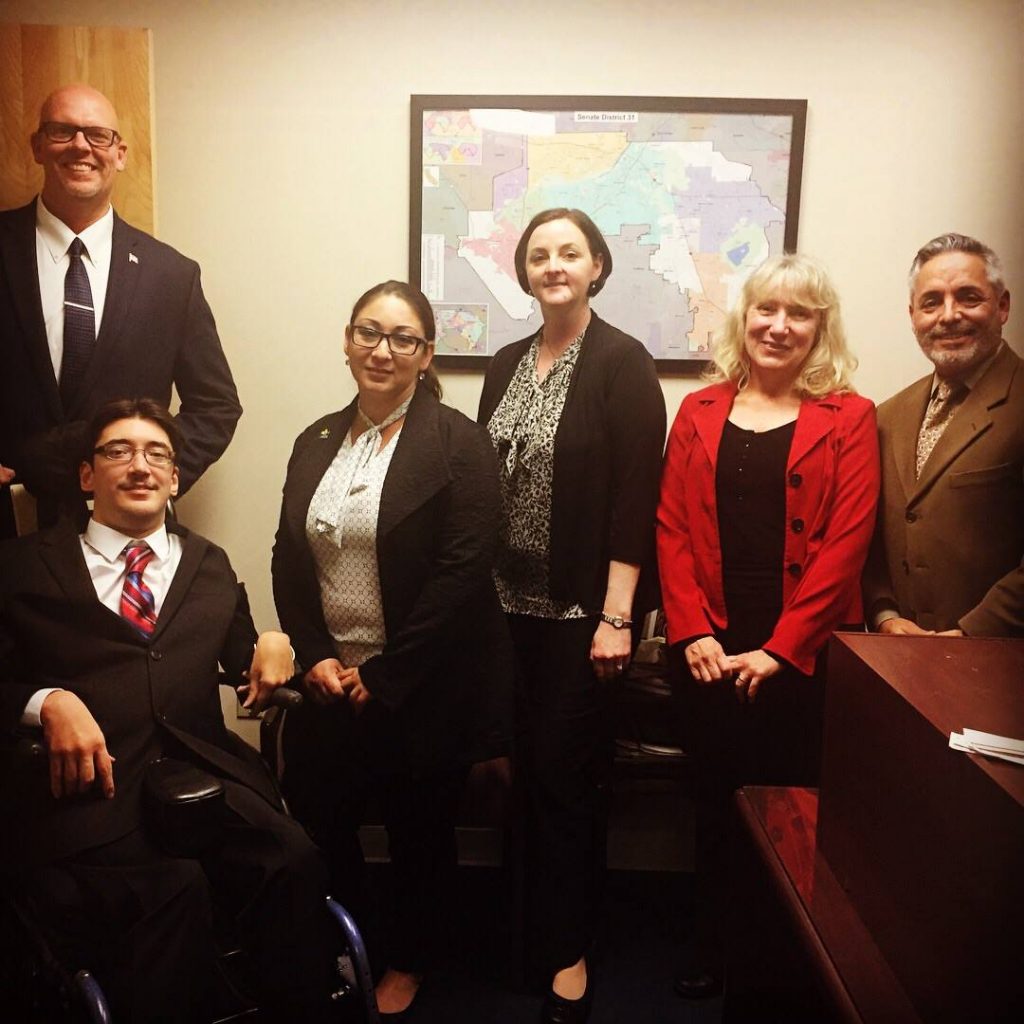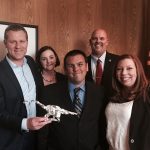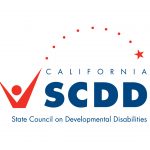In March, IRC’s Grassroots Day delegation traveled to Sacramento to represent Inland Regional Center. Grassroots Day has been organized annually by the Association of Regional Center Agencies (ARCA), since 1984. Grassroots Day allows regional center representatives to meet with California legislators and discuss areas of interest and concerns of people with developmental disabilities.
Grassroots Day History
I asked Daniel Savino, Government Affairs/Community Relations Director at ARCA to give us a little history on Grassroots Day. Here’s what I found out. The very first Grassroots Day was held on May 4, 1984. During this period, the regional center system was facing a significant financial crisis. The height of this crisis was Assembly Bill 40X. This bill imposed cost controls on regional centers and their services. Following the passing of AB 40X, ARCA developed a general legislative strategy. One of the major aims of this strategy was to “improve regional center accessibility to and communication with legislators.” Grassroots Day is likely a natural extension of this goal.
IRC’s Grassroots Day Team
The five members of Team IRC who attended Grassroots Day were chosen based on their ability to share their personal stories. These team members worked hard to communicate IRC needs in a relatable way that would also be personal and engaging. Our team included:
- Jennifer Cummings, IRC Program Manager, Fair Hearings & Legal Affairs
- Lilliana Garnica, IRC Diversity Outreach Coordinator
- Cody Williams, IRC Consumer Advocate
- Donita Remington, Associate Director, University Center for Developmental Disabilities Cal State San Bernardino
- CJ Cook, IRC Program Manager, Community Engagement
Why is Grassroots Day important?
Grassroots Day provides regional centers an opportunity to advocate the continuing entitlement of individuals with developmental disabilities. We can meet face to face with those who can have a direct impact on budget dollars. And we can discuss the importance of the supports and services that enable full community inclusion of our Consumers.
What We Advocated For!
We were able to spend time talking with California State Senators and Assemblymembers about four major points:
- Restore social recreation and camp – Regional centers work to help individuals live in their family homes, and to ensure equitable access to services across racial and ethnic lines. Some families use camp or social recreation services because they provide both social opportunities and a break for caregiving families. But those services were “temporarily suspended” (cut) by the Legislature in 2009. This had a disparate impact on diverse communities, and these services should be reinstated. Additionally, these low-cost, high-impact services help individuals to be truly included in their communities, which is consistent with their desires as well as federal expectations.
- Reject the “Uniform Holiday Schedule” – The Governor’s budget proposes a “Uniform Holiday Schedule.” This is a relic of the 2009 recession-era cuts, and is actually a furlough schedule, with 14 mandatory unpaid days forced upon providers. It amounts to a rate cut for service providers and forces many direct service professionals, many of whom are paid minimum wage, to take unpaid days off. It also threatens the independence of those individuals who require support to work as well as impacts family members who must take time off work to ensure appropriate supervision is provided. This policy is short-sighted and should be rejected.
- Fund affordable housing – The developmental centers are in the final phases of closing down. This is an opportunity to re-think how the state funds affordable housing for our community. Originally, these were the only housing (and service) options for people with developmental disabilities. As we move to a purely community-based model, it is time to look at new ways to prioritize our population’s housing needs.
- Support Assemblymember Holden’s bridge funding request – Assemblymember Chris Holden is advocating for one-time bridge funding to help service providers pay for unfunded costs. Provider rates have not kept pace with the cost of delivering critical services. While a contractor for the Department of Developmental Services is finishing a comprehensive study of payment rates, sound businesses are struggling. Stabilizing those programs respects the choices of people served, saves the jobs of direct service professionals, and will help keep prevent service interruption until the rate study comes out in March 2019.
Inland Regional Center would like to thank ARCA for organizing this amazing opportunity and for the legislators and their staff who took time to meet with us. You are all allies of the disability community!
The Association of Regional Center Agencies (ARCA) represents California’s network of 21 independent, non-profit regional centers that advocate on behalf of and coordinate services for California’s over 300,000 people with developmental disabilities. Learn more at arcanet.org.
Share this Post





